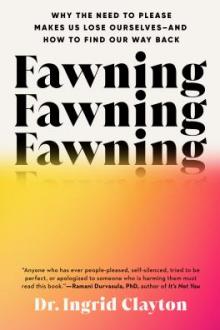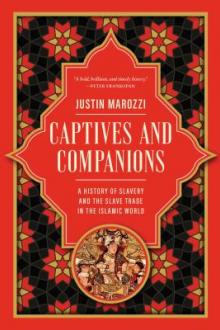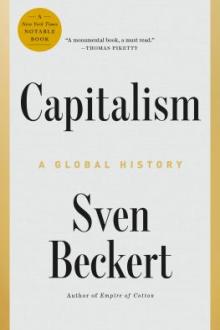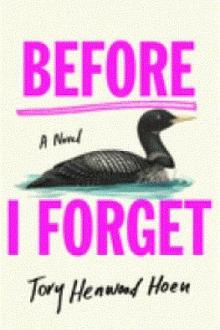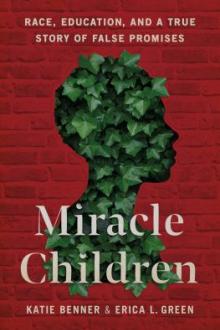ODY New Books Collection
New Books
Moths of Western North America
Authored by: Seabrooke Leckie
"Western North America is home to a surprising array of moth species that come in a variety of colors and sizes. This richly illustrated field guide covers 1,900 of the most commonly occurring species in the region, from the United States-Mexico border north to Edmonton, Alberta, and central British Columbia. Images on the full-color plates are marked with arrows to help users quickly know the most important features to look for, while facing-page species accounts highlight these features and, when applicable, how they differ from those of similar species. Whether you are a beginning moth enthusiast or a seasoned observer in the field, Moths of Western North America is the ultimate photographic guide to these marvelous insects."
Advance Britannia
The Epic Story of the Second World War, 1942-1945
Authored by: Alan Allport
"The author of Britain at Bay-which The Wall Street Journal said may be "the single best examination of British politics, society, and strategy [from 1938 to 1941] that has ever been written"-picks up his sweeping social history in 1942, when what was once a regional war has become an intricate, globe-spanning conflict, with profound consequences for the British Empire and for a British people already exhausted after more than two years of fighting. "The Japanese, gone berserk, have struck in the Pacific, joined up with the Axis, declared war on us," one British soldier wrote in his diary. "So the Yanks are now our comrades in arms, and the whole world's ablaze." By 1942, Churchill found himself facing a vastly different war than the one he'd inherited from Neville Chamberlain back in 1940. In the East, the Soviets were now a co-belligerent (if not exactly a firm ally). And the aid he'd so longed for from across the Atlantic had finally arrived, when Pearl Harbor pushed America to end its "dithering and buggering about." But with Parliament and the public losing faith in him, Churchill had to manage a war that now stretched into the Pacific and Indian Oceans, threatening Britain's colonies, all the while negotiating a new relationship with Roosevelt and Stalin-two jostling, unpredictable comrades-in-arms fully prepared to carve up the world to their own satisfaction. In this sequel to his prizewinning Britain at Bay, Alan Allport completes his superlative history of Britain's role in World War II, once again weaving together the political, military, social, and cultural to tell a multifaceted story of a country forced to endure the profound stresses of total war. Now, Britain is no longer at bay. But any victory remains far off, and its costs will be great. Can the British win the war without sacrificing so much along the way that they then lose the peace?"-- Provided by publisher
The Writing in the Water
A Thriller
Authored by: John Ajvide Lindqvist
Translated by Michael Meigs
Julia Malmros is thriving. A former police officer making her way in the world of crime fiction, she's turning popularity into fame by writing the next book in a world-renowned suspense series. To help her research, Julia connects with Kim Ribbing. More hacker than man, Kim bears a dark past that's the very antithesis of the promising future she has planned for herself. They share an undeniable spark--yet it's likely to implode. That's the least of Julia's worries. Hounded by publicity, Julia retreats to her cottage in the Stockholm archipelago. It's there that she begins to reevaluate her life, reunite with Kim...and return to her investigative roots after tragedy unfolds on a nearby pier. The victim: a billionaire, her childhood friend. Julia's ex, Jonny, leads the official investigation, but Julia knows there's no such thing as coincidence. And as she and Kim follow the trail of cash, corruption follows dangerously close behind.
The Summer My Mother Had Green Eyes
Authored by: Tatiana Țîbuleac
Translated by Monica Cure
"From one of Moldova's most celebrated writers, The Summer My Mother Had Green Eyes is a complex coming-of-age story unraveling the fragile, complicated, redemptive relationship between a mother and her son. Aleksy still remembers the last summer he spent with his mother in Northern France. At eighteen, eager to fly the nest and escape a family still grief-stricken by the death of his sister years earlier, these lazy months in the countryside are akin to torture. And then, his mother tells him she's dying. Fourteen years later, at the urging of his psychiatrist, Aleksy relives the memory of the summer when everything changed, shaken once again by the emotions that besieged him when they arrived in that small French village. For fans of Claire Keegan and Elena Ferrante, this is a story of reconciliation, of three months in which mother and son finally lay down their weapons to make peace with each other and with themselves." -- Provided by publisher
The Seven Rules of Trust
A Blueprint for Building Things That Last
Authored by: Jimmy Wales with Dan Gardner
"From the founder of Wikipedia, a reflection on the global crisis of credibility and knowledge, revealing 'the rules of trust' that transformed Wikipedia from a scrappy experiment into a global utility used by billions of people-and how those rules can help others build things that last"-- Provided by publisher
The Sea Captain's
Wife
A True Story of Mutiny, Love, and Adventure at the Bottom of the World
Authored by: Tilar J. Mazzeo
"Summer, 1856. Nineteen-year-old Mary Ann Patten and her husband, Joshua, were young and ambitious. Both from New England seafaring families, they had already completed their first clipper-ship voyage around the world with Joshua as captain. If they could win the race to San Francisco that year, their dream of building a farm and a family might be within reach. It would mean freedom. And the price of that freedom was one last dangerous transit-into the most treacherous waters in the world. As their ship, Neptune's Car, left New York Harbor and sailed down the jagged coast of South America, Joshua fell deathly ill and was confined to his bunk, delirious. The treacherous first mate, confined to the brig for insubordination, was agitating for mutiny. With no obvious option for a new captain and heartbroken about her husband, Mary Ann stepped into the breach and convinced the crew to support her, just as they slammed into a gale that would last 18 days. Determined to save the ship, the crew, and their future, she faces down the deadly waters of Drake's Passage. Set against the backdrop of the California Gold Rush and taking us to the brink of Antarctica, The Sea Captain's Wife finally gives Mary Ann Patten-the first woman to command a merchant vessel as captain - her due. Mazzeo draws on new archival research from nineteenth-century women's maritime journals and on her own expedition to the Southern Ocean and Antarctica in search of Mary Ann's route. Thrilling, harrowing, and heroic, The Sea Captain's Wife is the story of one woman who, for love, would do what was necessary to survive." -- Provided by publisher
The Old Fire
A Novel
Authored by: Elisa Shua Dusapin
Translated by Aneesa Abbas Higgins
"Agathe leaves New York and returns to her home in the French countryside, after fifteen years away. She and her sister Véra have not seen each other in all those years, and they carry the weight of their own complicated lives. But now their father has died, and they must confront their childhood home on the outskirts of a country estate ravaged by a nearby fire before it is knocked down. They have nine days to empty it. As the pair clean and sift through a lifetime's worth of belongings, old memories, and resentments surface. Tender and tense, haunting and evocative, The Old Fire is Elisa Shua Dusapin's most personal and moving novel yet. An exploration of time and memory, of family and belonging, it is also a graceful and profound look at the unsaid and the unanswered, the secrets that remain, and whether you can ever really go home again." -- Publisher's description
Mosses, Liverworts & Hornworts of the World
A Guide to Every Order
Authored by: Joanna Wilbraham
"Bryophytes are a highly diverse group of plants found in nearly all parts of the world and across a range of habitats. The term 'bryophye' describes plants of three closely related lineages: the mosses, liverworts, and hornworts. Ancient in their makeup, bryophytes disperse by spores rather than seeds and grow no more than a few centimeters high, carpeting forest floors or clinging to rocks and tree trunks. Instead of conducting fluids internally (like vascular plants), they absorb water and nutrients externally across the whole body of the plant. Such strategies have enabled bryophytes to survive, and indeed thrive, through the millennia. Mosses, Liverworts, and Hornworts of the World makes sense of their miniature world, differentiating between the three lineages and delving into their evolution, anatomy, and life cycles. The result is an unprecedented in-depth look at these exquisitely beautiful and often overlooked organisms." -- Provided by publisher
Lightbreakers
[a Novel]
Authored by: Aja Gabel
The novel follows a married couple, an artist and a physicist, who confront unresolved grief connected to the physicist's deceased daughter. When he joins a research initiative investigating time travel, he becomes involved in high-risk experiments that raise the possibility of encountering his past. At the same time, his spouse returns to her own earlier experiences in Japan, revisiting significant relationships and personal history. As both characters navigate emotional and scientific uncertainties, they uncover information that calls the nature of the research into question. The narrative addresses themes of memory, loss, scientific exploration, and the complexities of human relationships.
I Am You
A Novel
Authored by: Victoria Redel
"At eight years old, Gerta Pieters is forced to disguise herself as a boy and sent to work for a genteel Dutch family. When their brilliant and beautiful daughter Maria sees through Gerta's ruse, she insists that Gerta accompany her to Amsterdam and help her enter the elite, male-dominated art world. While Maria rises in the ranks of society as a painting prodigy, Gerta makes herself invaluable in every way: confidante, muse, lover. But as Gerta steps into her own talents, their relationship fractures into a complex web of obsession and rivalry--and the secrets they keep threaten to unravel everything." -- Provided by publisher
Homeschooled
A Memoir
Authored by: Stefan Merrill Block
In this memoir, Stefan Merrill Block recounts his childhood after being withdrawn from public school at the age of nine and educated at home by his mother. He reflects on his experiences within both homeschooling and traditional educational systems, as well as the complex and often strained relationship between mother and son. The narrative situates his personal story within the broader context of the rise of homeschooling in the United States and examines the effects of his upbringing, including his later return to public school and experiences with bullying. The work explores themes of family dynamics, education, identity, and reconciliation.
Hobtown Mystery Stories. 3, the Secret of the Saucer
Authored by: written by Kris Bertin
Illustrated by Alexander Forbes ; colored by Jason Fischer-Kouhi
The lines between conspiracy and reality tangle during election season in Hobtown as a new-old member of the Teen Detective Club surfaces to challenge Dana's leadership and redirect the group's attention back to the discounted but pressing concern that "ALIENS!" are among us. On a grander scale, amid the town's hotly contested mayoral race, the arrival of a flying saucer and a chaotic "Ape Lord" being pursued by the local Knitting Circle have the teen sleuths of Hobtown unsure if they're coming or going, as literal backward thinking tears at the threads of their friendships and their grasp on their latest case . .
Fawning
Why the Need to Please Makes Us Lose Ourselves--and How to Find Our Way Back
Authored by: Dr. Ingrid Clayton
"From a clinical psychologist and expert in complex trauma recovery comes a powerful guide introducing fawning, an often-overlooked piece of the fight-flight-freeze reaction to trauma-explaining what it is, why it happens, and how to help survivors regain their voice and sense of self." -- Provided by publisher
The Elements of Power
A Story of War, Technology, and the Dirtiest Supply Chain on Earth
Authored by: Nicolas Niarchos
"Epic, shocking, and deeply reported, The Elements of Power tells the definitive story of the great power struggle for control over the supply of battery metals--essential for decarbonization of our economies--and the terrible, bloody human cost of this badly misunderstood industry that is crucial to the production of every iPhone, electric vehicle, and many other devices we depend on Congo is rich. Swaths of the war-torn African country lack basic infrastructure, and its people are officially among the poorest in the world, after many decades of colonial occupation. But hidden beneath the soil are vast quantities of cobalt, lithium, copper, tin, tantalum, tungsten, and other treasures. Recently, this veritable periodic table of resources has become extremely valuable--priceless even. This is because these metals are essential for the global "energy transition"--the plan for wealthy, developed nations to wean themselves off fossil fuels by shifting to sustainable forms of energy, such as solar and wind. At great cost, the electrification of the world's economy has begun. China and the United States, the world's two great powers, are vying for influence across the globe, and China has a considerable head start, having snatched up global energy resources for decades and investing prodigious sums in electric vehicle development. But in our rush towards green energy, we have become reliant on batteries made from resources unearthed continents away and willfully blind to the terrible political, environmental, and social consequences for the people of Congo and beyond. If Congo possesses such riches, why are children there routinely descending deep into treacherous mines to dig with the most rudimentary of tools, if not their bare hands? Who must pay the price for progress? In The Elements of Power, prize-winning reporter Nicholas Niarchos reveals how the scramble to control these metals and their production is upending world order, just as the global race to drill for oil shaped the twentieth century. Tracing the advent of the lithium-ion battery, and following the supply chain for its production all the way from the mines in Congo, to the factories in China, via the Silicon Valley boardrooms where the decisions that echo across continents are made, Niarchos brings the story home back to us, the American consumers, and the devices we use and hold in our hands every day. He reveals the true devastating consequences of our best intentions, and looks to an uncertain future." -- Provided by publisher
Captives and Companions
A History of Slavery and the Slave Trade in the Islamic World
Authored by: Justin Marozzi
Historian Justin Marozzi traces fifteen centuries of slavery across the Islamic world -- an institution as vast and enduring as it was complex. From the early Arab conquests to the Ottoman Empire and beyond, enslaved men, women, and children filled roles as soldiers, eunuchs, courtesans, and concubines, with some rising to positions of immense power. Marozzi explores how the Islamic slave trade shaped societies from North Africa to the Middle East and Asia, with Africa bearing the greatest toll as millions were captured and sold across deserts and seas. Drawing on sources from Baghdad to Istanbul and beyond, this sweeping history uncovers a long-overlooked system of bondage that persisted for over a millennium and continues to echo in parts of the modern world
Capitalism
A Global History
Authored by: Sven Beckert
"Sven Beckert, founder of Harvard's Program on the Study of Capitalism, has made a profound impact on his field, including his Bancroft-Prize-winning history, Empire of Cotton. That was merely base camp for the epic achievement of his new book. Capitalism, Beckert argues, was born global. Emerging from interconnected nodes in Asia, Africa, and Europe and at first dominated by Arab traders, capitalism rooted itself gradually, persisting for centuries as a vital but limited circulatory system that left most of the world's economic life untouched. But then it burst onto the world scene, as European states and merchants built a powerful alliance that propelled them across the oceans. This, Beckert shows, was modern capitalism's big bang, and its epicenter was the Caribbean. Europeans violently transformed tropical islands into slave labor camps, built with unparalleled efficiency and brutality to produce the world's most valuable commodities. This system, with its hierarchies that haunt us still, provided the lift-off for the even more radical transformations of the Industrial Revolution. Empowered by vast productivity increases, capitalism pulled down old ways of life and expanded its orbit ever further. Gorging on coal and then oil, it erased earlier traditions and crowned itself the defining force of the modern world. This epic drama corresponded at no point to an idealized dream of free markets. All along, state-backed institutions and imperial expansions shaped its dynamics, never more than when the system reached its worst crack-up ever in the two world wars and the Great Depression. In the aftermath, anti-colonial rebellions stripped capitalism of its European flavor to create the multipolar world we live in today. Drawing on archives on five continents, Capitalism decenters the European perspective, locating important modes of agency, resistance, innovation, and ruthless coercion everywhere in the world, including India, Japan, Africa, and the Americas, through to the present with China's rise. Beckert opens the aperture from heads of state to rural cultivators to show that constant struggle is at the core of the capitalist revolution. Despite its dependence on expansion, there always have been, and are still, areas of human life it has yet to reach. By peeling back the layers of capitalism's global history, Beckert exposes the truth of the system that to us now seems simply "natural." It is said that people can more easily imagine the end of the world than the end of capitalism. If there is one ultimate lesson in this extraordinary book, it's how to leave that behind. Capitalism is nothing if not a human invention, and so is the ideology that cloaks itself in a false, timeless universality. Sven Beckert doesn't merely tote up capitalism's debits and credits. He shows us how to look through and beyond our reigning metaphor to imagine a larger world."-- Provided by publisher
The Architect of New York
A Novel
Authored by: Javier Moro
Translated from the Spanish by Peter J. Hearn
"A transportive work of historical fiction chronicling the life, loves, and iconic successes of Rafael Guastavino, the influential yet largely forgotten Spanish architect of New York's Gilded Age." -- Provided by publisher
American Reich
A Murder in Orange County, Neo-Nazis, and the New Age of Hate
Authored by: Eric Lichtblau
From the Pulitzer-winning author of the New York Times bestseller The Nazis Next Door, a deeply reported exploration of the violent resurgence of hatred and white supremacy through the lens of Orange County, California--"ground zero" for racial extremism--and the story of one brutal murder there that revealed the deep roots of violent bigotry as a bellwether for the country. One night in early 2018, while he was home from college, an Ivy League student named Blaze Bernstein snuck out of his parents' house in Orange County. Waiting for him in a car outside was an old high-school classmate: Sam Woodward, someone who Blaze mostly remembered as a brooding, bigoted loner. But that night, after months of flirtatious messaging, Sam had succeeded in coaxing Blaze--a gay, Jewish sophomore at UPenn--out for a rendezvous. No one would ever see him alive again. In American Reich, veteran investigative journalist Eric Lichtblau uses the story of Blaze's life and death to shine a light on the epidemic of hate in Southern California and, increasingly, the nation as a whole. Orange County has long been a bastion of the ultra-right: carved out of farmland as a haven for wealthy whites fleeing the diversifying metropolis to the north, it was the birthplace of the far-right John Birch Society, a hub for neo-Nazi recruitment, and a powerful springboard for race-baiting Republican politicians including Richard Nixon and Ronald Reagan. But in the years leading up to Blaze's disappearance, Orange County was changing: like the country as a whole, it was rapidly diversifying, to the outrage of many of its white residents. No one was more opposed to the changes than America's resurgent neo-Nazi groups, one of which had recently gained a new member: Sam Woodward. Revealing how Orange County has exported racial hatred to the rest of the country and the world, American Reich weaves this tragic tale together with stories from across the nation, showing what this haunted place and the colliding paths of two of its residents reveal about America's fractured soul and our hope for healing.
Before I Forget
A Novel
Authored by: Tory Henwood Hoen
"A funny, heartfelt, late coming-of-age story that examines the role of memory in holding us back-and in moving us forward-for fans of The Collected Regrets of Clover and Maame. Call it inertia. Call it a quarter-life crisis. Whatever you call it, Cricket Campbell is stuck. Despite working at a zeitgeisty wellness company, the 26-year-old feels anything but well. Still adrift after a tragedy that upended her world a decade ago, she has entered early adulthood under the weight of a new burden: her father's Alzheimer's diagnosis. When Cricket's older sister Nina announces it is time to move Arthur from his beloved Adirondack lake house into a memory-care facility, Cricket has a better idea. In returning home to become her father's caretaker, she hopes to repair their strained relationship and shake herself out of her perma-funk. But even deeply familiar places can hold surprises. As Cricket settles back into the family house at Catwood Pond--a place she once loved, but hasn't visited since she was a teenager-she discovers that her father possesses a rare gift: as he loses his grasp of the past, he is increasingly able to predict the future. Before long, Arthur cements his reputation as an unlikely oracle, but for Cricket, believing in her father's prophecies might also mean facing the most painful parts of her history. As she begins to remember who she once was, she uncovers a vital truth: the path forward often starts by going back. With laugh-out-loud humor and profound grace, Before I Forget explores the nuances of family, the complexities of memory, and how sometimes, the people we know the best are the ones who surprise us the most."-- Provided by publisher
Miracle Children
Race, Education, and a True Story of False Promises
Authored by: Katie Benner and Erica L. Green
"A riveting investigation into a school, a scam, and a notorious college admissions scandal that exposes the inequalities and racial segregation of American education, from two award-winning New York Times journalists. T.M. Landry College Prep, a small private school in Breaux Bridge, Louisiana, boasted a 100 percent college acceptance rate, placing students at nearly every Ivy League university in the country. The spectacle of Landry students opening their acceptance letters to Harvard and Stanford was broadcast on television and even celebrated by Michelle Obama. It became a national ritual to watch the miraculous success of these youngsters-miraculous because Breaux Bridge is one of the poorest counties in the country, ranked close to the bottom for test scores and high school graduation rates. T.M. Landry was said to be "minting prodigies," and the prodigies were often Black. How did the school do it? It didn't-it was a scam, pulled off with fake transcripts and personal essays telling fake stories of triumph over adversity. Worse: Landry's success concealed a nightmare of alleged abuse and coercion. In a years long investigation, Katie Benner and Erica L. Green explored the lives of the students, the school, the town, and Ivy League admissions to understand why Black teens were pressured to trade racial stereotypes of hardship for opportunity. Gripping and illuminating, Miracle Children argues that the lesson of T.M. Landry is not that the school gamed the system but that it played by the rules-its deceptions and abuses the outcome of segregated schools, inequitable education, and the belief that elite colleges are the nation's last path to life-changing economic opportunity." -- Provided by publisher



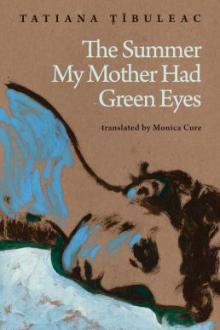
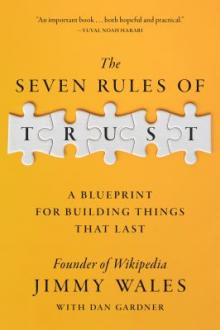
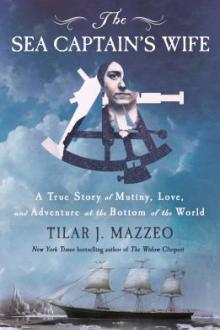


![Lightbreakers : [a novel] / Aja Gabel](/sites/default/files/styles/portrait_2_3/public/media-book-images/image_5bccc5d59d2e185729fed6f6de21048b.jpg?h=e3b5b71f&itok=NPVN4ptA)



